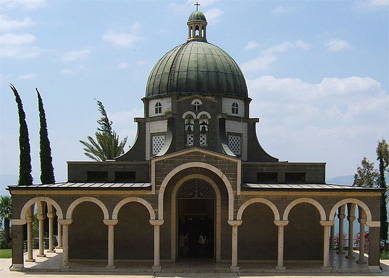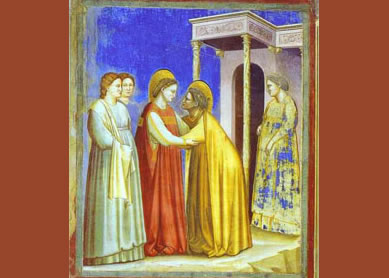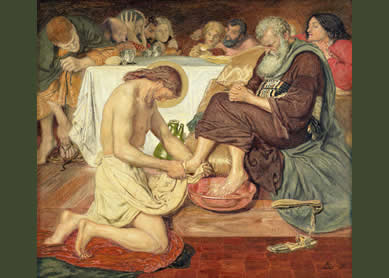The Beatitudes are a series of Bible verses in which Jesus pronounces blessings upon people either because of who they are (“the poor”) or because of what they do (“the peacemakers”). For example, he says, “Blessed are the meek for they will inherit the earth” (Matt 5:5). The word “beatitudes” comes from a Latin word for “blessing.”
The best-known version of the Beatitudes is found in Matt 5:3-12, but a different version is found in Luke 6:20-26. The verses serve as the opening words for the Sermon on the Mount in Matthew’s Gospel, and for the Sermon on the Plain in Luke. In both cases they are addressed primarily to Jesus’ disciples.
In Matthew, Jesus speaks nine blessings, but in Luke he speaks only four, which are then followed by a series of “woes” in which he effectively curses people who are the opposite of those he has just declared blessed (Luke 6:24-26). Thus, “Blessed are you who are poor” is accompanied by “Woe to you who are rich.”
It is often said that Matthew’s beatitudes are more spiritual, while Luke’s are more down to earth. In Luke, Jesus blesses the poor, but in Matthew he blesses the poor in spirit; in Luke, Jesus blesses people who are hungry; in Matthew, he blesses those who hunger for righteousness.
The first four beatitudes in Matthew, however, have been interpreted in two different ways. According to one popular interpretation, Matt 5:3-6 presents Jesus as promising rewards to people who exhibit various virtues: the poor in spirit may be linked with the unpretentious, those who mourn with the penitent, the meek with the humble, and those who hunger for righteousness with those who earnestly desire to do what is right.
An alternative reading takes Matt 5:3-6 as promising reversal to people who live in unfortunate circumstances: the poor in spirit are the despondent, those who mourn are the miserable, the meek are dispossessed people, and those who hunger for righteousness are victims of injustice (that is, people who yearn to be treated with righteousness).
Which interpretation is correct? Proponents of the first view indicate that the remaining beatitudes (those found in Matt 5:7-12) obviously promise rewards for virtue rather than reversal of unfortunate circumstances. Jesus blesses people who are merciful, who are pure in heart, who actively work for peace, and who display a willingness to suffer so that God’s will might be done. It makes sense that the first four beatitudes could be read in a manner consistent with the later ones.
But proponents of the second view say that their interpretation presents the first four beatitudes in Matthew as more consistent with the ones found in Luke. Furthermore, they say that there is still consistency in the Matthean beatitudes as a whole because the virtues praised in Matt 5:7-12 are ones enacted on behalf of the unfortunate persons described in Matt 5:3-6. The point, then, is that God’s goodness is a blessing both to those who suffer and to those who join God in alleviating suffering.
Individual verses that might also be called beatitudes are found many other places in the Bible (see Ps 118:26, Isa 30:18, Jer 17:7, Matt 11:6, Matt 16:17, Luke 1:42, John 20:29, Rev 1:3).




